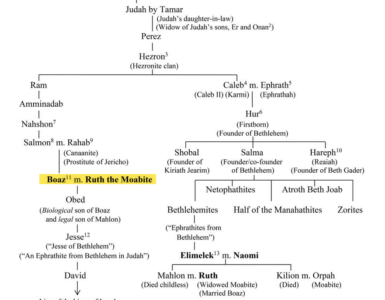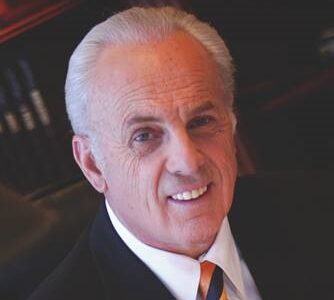 Jesus envisioned his followers would be hard to resist: a wildly diverse yet compellingly unified multitude of strangers that would penetrate the world with love. They would lead the world in acts of love and justice and be the most life-giving bosses, employees, neighbors, and friends. They’d also be the best enemies, returning insults with kindness and persecution with prayers. They’d stay true to their biblical convictions while loving, listening to, and serving those who don’t share their convictions. Over time this Jesus movement would become irresistible to people from every nation, tribe, and tongue. How does Christianity stack up to Jesus’ expectations?
Jesus envisioned his followers would be hard to resist: a wildly diverse yet compellingly unified multitude of strangers that would penetrate the world with love. They would lead the world in acts of love and justice and be the most life-giving bosses, employees, neighbors, and friends. They’d also be the best enemies, returning insults with kindness and persecution with prayers. They’d stay true to their biblical convictions while loving, listening to, and serving those who don’t share their convictions. Over time this Jesus movement would become irresistible to people from every nation, tribe, and tongue. How does Christianity stack up to Jesus’ expectations?
Bible Gateway interviewed Scott Sauls (@scottsauls) about his book, Irresistible Faith: Becoming the Kind of Christian the World Can’t Resist (Thomas Nelson, 2018).
Why does the word Christian evoke negative reaction among many people?
Scott Sauls: One of the main reasons for this is nominalism, or the dynamic of people being ‘Christian,’ but in name only. Most especially, when kids and teens and young adults see their parents acting differently in private than they do in public—when their parents’ ‘church self’ is markedly different than the ‘home self’ or ‘Friday night self;’ when their use of things like sex, money, and power are contradictory to the Christian ethic, young people start to associate ‘Christian’ with ‘hypocrite.’
What do you mean when you write, “The problem isn’t with Christianity as much as it is with our flawed approach to and understanding of Christianity.”
Scott Sauls: I think there are two errors that many of us fall into, and that lead to a flawed approach to faith. The first is the ‘grace without truth’ error, which leads us to soften the call of the gospel. ‘Jesus loves me, this I know’ becomes an excuse to follow the world instead of following Jesus. It makes us more prone to deny our neighbor, take up our comforts, and follow our dreams than to deny ourselves, take up our crosses, and follow Jesus. The grace without truth error is salt without savor, light without heat. It’s anemic. It isn’t faith, but is, rather, codependent enabling of others and of self.
Likewise, there’s the ‘truth without grace’ error, which leads us to shame, scold, and separate. And, of course, few things corrupt and diminish the true Christian witness more than such things. We must return to the pattern of Christ, who welcomed sinners and ate with them, and who was willing to be misunderstood—even mischaracterized as a glutton and a drunk—because of who he associated with. And yet, he remained holy and pure in his character. He put first things first, and so must we. Even if we speak in tongues, prophesy, and become martyrs, we’re nothing without love.
How is the realization that we’re not okay the beginning of blessedness?
Scott Sauls: Embracing our non-okay-ness is our first and most necessary step in receiving Jesus. Allowing ourselves to not be okay frees us to walk the journey toward perfection, versus feeling and acting as if we’re expected to be perfect already. When we remember that Christ is both the author and perfecter of our faith, and that he who began a good work will be faithful to complete it until the day of Christ, we become free to relax in ways that performance-based religion and living don’t allow. We’re incomplete works in process, but that’s okay because we’re just as secure in Christ today as we will be 10,000 years from now in glory. Why? Because he’s moved our judgment day from the future to the past. The last words of his life, ‘It is finished,’ have now become the first words of ours. We can exhale. There’s now no condemnation in Christ.
What do you mean we’re meant to improve and how is that achieved?
Scott Sauls: Martin Luther once said that we’re saved by faith alone, but faith that saves is never alone. Christ’s invitation to us is to come as we are, but this must not be confused with an invitation to stay as we are. Because Christ intends to change us, to transform and renew us, to turn us into the very best and most life-giving versions of ourselves. If anyone is in Christ, she is a new creation. The old is gone and the new has come. Faith without works is dead. Et cetera. Those are the theological reasons. But there’s also an existential one. If I love Christ, I will want with all my heart to please him. His wish will become my command, not because his wish holds me down and subdues me, but because it (his wish, or his truth) sets me free.
Unpack your statement: “following Jesus and following Scripture are inseparable endeavors.”
Scott Sauls: My friend and former mentor, Tim Keller, put it succinctly. If you poked Jesus, he would bleed Scripture. We see this especially in Matthew 4, where he counters each of the devil’s temptations by speaking biblical truth. We also see it at his most vulnerable and valiant moment: on the cross where he quotes from Psalm 22, ‘My God, my God, why have you forsaken me?’ And throughout the Gospels, he repeatedly emphasizes that loving him and obeying his words are the same thing. Keller goes on to ask, ‘How can we say we love and trust Jesus, while at the same time rejecting all or part of the book upon which he based his entire life?’ To do so would be inconsistent at best, and wicked at worst.
What should people do when they read Bible passages that are perplexing?
Scott Sauls: The first thing I believe they should do is respond to God honestly. Tell him that his words perplex you and why. Like the Psalmists so often do, wrestle with him, question him, tell him how confused you are with his ways, offer a lament or a complaint. But as you do these things, be sure that you maintain the honor and respect due to a King. Because when we’re at odds with the King and his words, the problem is not with the King, but with us. The purpose of Scripture reading is the same as the purpose of prayer, ultimately—it’s not to align God to our will and ways, but to align us to his. This is where trust comes into play. In the end, we must either say, ‘Not my will but yours be done,’ or ‘Not your will but mine be done.’ To do the former is wisdom and to do the latter is utter foolishness. If we trust his character, then ultimately we’ll also trust his Word. Even the hard parts.
How do you hope people will change from reading your book?
Scott Sauls: I pray first and foremost that readers will come to understand, either for the first time or afresh, that they’re wildly and irrevocably loved in Christ, and that they’ll anchor their identities in the one thing they can never lose: the Savior who loved them and gave himself for them. I pray that from this place, they’ll get into a committed, covenant community with others who share this identity in Christ, joining their imperfect selves to other imperfect selves to embark on a journey toward perfection in Christ, together and not alone. Finally, I pray that the book will motivate readers to get out into the world to love people, places, and things to live with a public faith, an orientation to love and serve those in need, and to integrate faith and work.
What is a favorite Bible passage of yours and why?
Scott Sauls: I’m partial to Romans 8, which many scholars have referred to as the greatest chapter ever written. Combined with Romans 7, Romans 8 essentially tells the whole story of the whole universe—and of a God who’s determined to rescue his straying sheep and restore his shattered creation, at great cost to himself. It’s also a wonderful reminder that in Christ, there’s no condemnation and no separation. And our best days are always ahead of us, and never behind us.
What are your thoughts about Bible Gateway and the Bible Gateway App and Bible Audio App?
Scott Sauls: I use it weekly for sermon preparation, Bible searches, etc. I’m very grateful for the resource!
Is there anything else you’d like to say?
Scott Sauls: Please get my book. I have kids in college.  But seriously, I’ve gotten some lovely feedback from those who’ve had a chance to read an early copy. Perhaps the most humbling of all is what Donald Miller says, that he misses the kind of church that I describe in Irresistible Faith. If my book can be part of helping others grow in irresistible faith, cultivate life-giving communities, and serve their neighbors well, it’ll make me very happy.
But seriously, I’ve gotten some lovely feedback from those who’ve had a chance to read an early copy. Perhaps the most humbling of all is what Donald Miller says, that he misses the kind of church that I describe in Irresistible Faith. If my book can be part of helping others grow in irresistible faith, cultivate life-giving communities, and serve their neighbors well, it’ll make me very happy.
Irresistible Faith is published by HarperCollins Christian Publishing, Inc., the parent company of Bible Gateway.
Bio: Scott Sauls is senior pastor of Christ Presbyterian Church in Nashville, Tennessee and author of Jesus Outside the Lines, BeFriend, and From Weakness to Strength. Prior to Nashville, Scott served at New York City’s Redeemer Presbyterian Church as a lead and preaching pastor and planted two churches. Scott’s work has been featured in publications including Christianity Today, Relevant, Qideas, Catalyst, Leadership Magazine, aholyexperience, Table Talk, The Gospel Coalition, Key Life, as well as other publications. Scott can be found on Facebook and Twitter/Instagram at @scottsauls, and he blogs weekly at scottsauls.com.
Transform your faith studying the Bible with your membership in Bible Gateway Plus. Try it right now!
The post How to Be the Kind of Christian People Can’t Resist: An Interview with Scott Sauls appeared first on Bible Gateway Blog.











